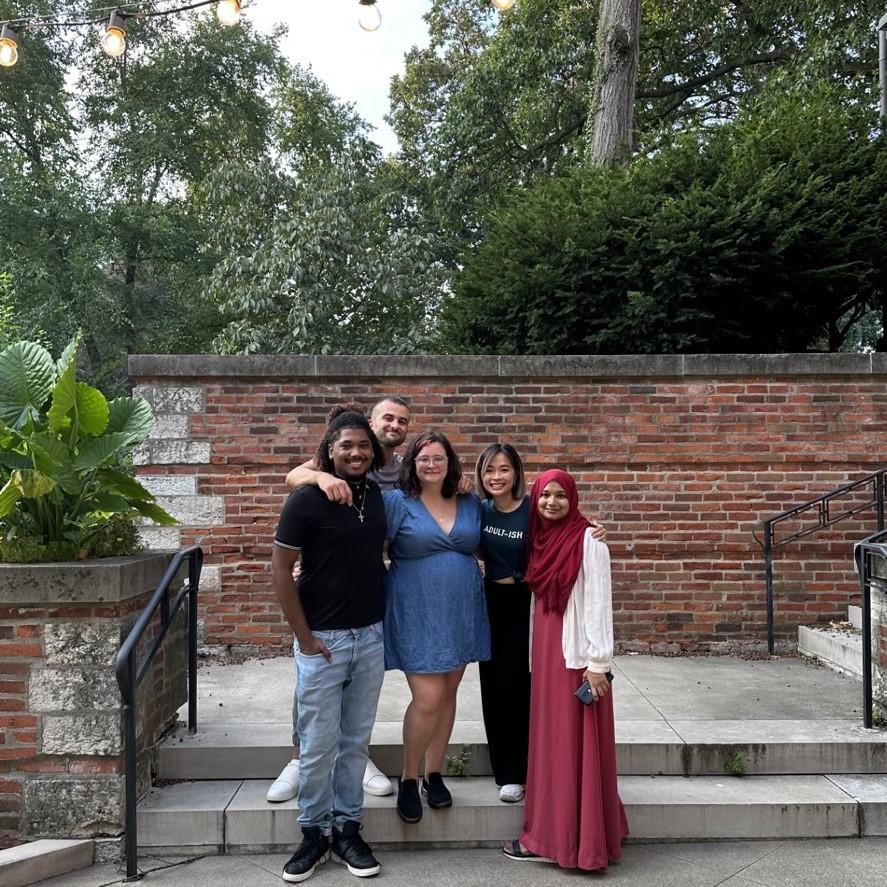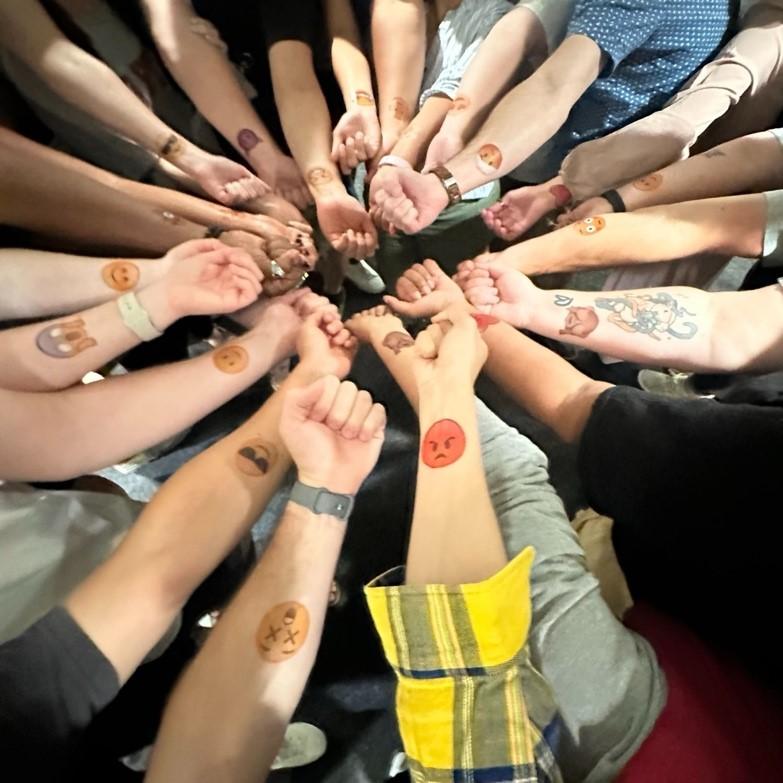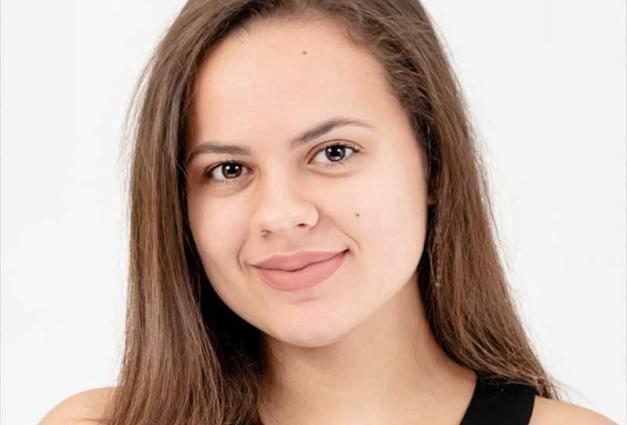Every two years, SPSP organizes an intensive two-week immersive summer learning and networking experience for doctoral students doing social and personality psychology research. After skipping a year in 2021 due to the pandemic, the Summer Institute for Social and Personality Psychology (SISPP) returned this year to be hosted at Ohio State University. One hundred PhD students (some already having defended and heading into their postdocs) from different parts of the world, along with their course instructors, convened in the sprawling, green Columbus campus of OSU from July 17-28, 2023. Students were assigned to one of five courses offered in different areas of psychological research, and also attended a day-long skill building workshop.
During my time at SISPP this summer, I chatted with some of my fellow attendees about how the experience felt, what they were taking away from it, and any advice they had for future attendees. In this piece, I share excerpts from my conversations with Aline da Silva Frost, Emily Esposito, Hannah Pearson, Raunak Pillai, Matt Leitao, and Stefano Ciaffoni. Read on to learn more about what they had to say!
What did a typical day in your course look like?
Aline: There was a lot of variation every day, which kept things interesting. We had opportunities to discuss collaborative projects with partners, discuss scientific papers as a group, and there was lots of discussion and collaboration every day rather than solely lecturing. There was a lot of emphasis on how students could incorporate emotions into their own research. On some days, professors and researchers from other institutions joined us on Zoom calls to discuss their work.
Emily: Our days usually started with a small lecture, then we would discuss in small groups and as a class the articles we read. After lunch, we would continue discussing articles. We also did some professional development, like talking to the professors about their careers and our questions about our own careers. For the rest of the day we worked in small groups on group projects that we proposed at the end of the course based on the topics we had been learning.
Hannah: In the morning, we typically started off the day with professional development conversations about how to get jobs in the field of religion, marketing yourself in the psychology of religion field, and other general professional development questions. Then we talked about the broad topics and readings for the day—every day had a different topic, like religion and intersectionality, morality, etc. After lunch, during the first week, we had individual presentations on our own research and developed research projects in small groups. During the second week, we presented our group projects.
Raunak: In the morning, we would start with a broad discussion of the general topic for the day. Then, we would break into small group discussions of a specific assigned article. After lunch, we would recap the discussions, then start working on exercises—basically, over the course of 2 weeks, we did this exercise from an article by Bill McGuire, where we were assigned an artificial construct (e.g. “intergroup trolling”), and we had to come up with a definition and examples for it, then think of a variable that might predict it, a potential mediating mechanism, and a contextual moderator as to when the relationship would hold or not.
Can you tell me about what you learned in your course?
Aline: I learned so much, I don’t know where to start! I learned about emotions at multiple levels, from the level of microlevel in neuroscience all the way to cross-cultural. I learned how to build theory and research programs that incorporate multiple levels of emotions, how to build collaborations, and how to think about my work in ways that I had never imagined.
Emily: I learned a lot about the relationship between social psychology and health—both physical and mental health, which was pretty interesting, and also interventions that could help with overall health. I also learned about the different mechanisms that connect stress to several physical health outcomes.
Hannah: I learned a lot about how interdisciplinary the psychology of religion is. I market myself as a psychology of religion person, but a lot of other people market themselves as morality researchers but they study religion intersectionally—they study it through the lens of morality or evolutionary theories. This gave me a new perspective on how to think about the same things—I would say that was the biggest thing I learned.
Raunak: I learned about a lot of different things related to how people identify with groups, and its impact on people’s thoughts and behavior; about social identity theory, social dominance theory, stereotype threat, intergroup contact, and other classic theories and findings on intergroup relationships. We also thought about issues from the perspective of dominant vs non-dominant groups and connected topics to real-world issues like polarization and prejudice.

What were your favorite parts of the SISPP experience?
Aline: I really enjoyed the focus on building community. At other events or conferences there are so many participants that as a new scholar in academia, you can feel really marginalized, but at SISPP there’s a big focus on getting to know people and their research, which helps foster feelings of belonging in academia, and this is especially important for people coming from non-traditional and minority backgrounds. Lots of times, people who build collaborations are those who are at the center of academic networks, and as a new scholar, especially from a minority background, it can be really hard to build that bridge and have those connections and collaborations, and feel belonging in a social sense, which is extremely important to produce high-quality work, and also for retention.
Emily: As much as I loved the classes, socializing and getting to meet other people in our field and getting to form those connections as we begin our careers, both at the friendship level and the research level was my favorite part.
Hannah: I think my favorite part has been getting to know everybody from different schools. It’s been particularly cool within my course, thinking about how these are the people we will be seeing and collaborating with for the rest of our careers. I also like that we made the time to meet people outside of our course and play ping pong or whatever people were doing in the common room every night.
Raunak: First, I loved meeting all the other students! Everyone was so friendly, kind, and welcoming. There were always people making plans to explore the city or play games or talk about research—that was my favorite part, hands down. Secondly—the opportunity to learn about social psychology, because my department doesn’t have a formal social psychology area. Third—playing more ping pong in 12 days than I probably have in my entire life.
Matt: Connecting with other grad students, and just knowing that there’s a solidarity in our experience. I had a lot of fun exploring places with my cohort, and having these really meaningful and in-depth conversations within the classes.

Were there any ways in which the course you were in inspired some ideas or potential directions for your own research when you returned to your program?
Aline: It inspired me to start collaborations with other researchers that will enrich my own research. To find people that have similar interests to build ideas together, and to provide a different perspective.
Emily: Learning about how different things that I study (e.g. belonging and stigma) can have such huge impacts on physical health was so interesting, and I can see the impact they have. It’s something I am interested in pursuing, which also opens up grant funding lines, and opens up my research in ways I hadn’t thought of before.
Hannah: Because we were able to present our own research in class, I was able to get feedback on a project I had already completed. I also had a conversation with the instructors about my dissertation—Kim and Adam are the top researchers in the field, and it was useful to get their perspective. For the class project, working in groups, we were able to build a project from the group up, and every group said they planning to run their project. I did the text analytics workshop, which I was not familiar with before. I’m really interested in pulling these big datasets from social media—it was useful for me to listen to people who have done this a lot and listen to their methods, and the things that have and have not worked in the years they’ve been working. It’s not offered in my school so it was cool to take a workshop that I otherwise wouldn’t have been able to take.
Raunak: Oh, 100%! I study misinformation from a cognitive perspective, and I’ll be going in a more social direction for my postdoc, working with Dr. Jay Van Bavel. Already through the course, I’ve learned about research on the minimal groups paradigm and social identity theory, and have developed a few ideas to apply to my misinformation work to see how group identity shapes people’s reactions to true and false news.
Do you have any advice for future SISPP applicants/attendees?
Aline: I strongly believe that all graduate students should apply because it’s a transformative experience. Even if you’re not sure if you want to stay in academia, you will see academia in a different way through SISPP (by coming here). Be engaged in the events and be intentional about getting to know people. Even if you’ve had past negative experiences in academic settings, be intentional and open-minded about getting to know people and it may surprise you what people can do together—the potential that young scholars have. I feel hopeful seeing the diversity, inclusivity, and engagement of the graduate students who will build academia—the scholars of tomorrow.
Emily: Just be open and be yourself. I think some people were worried that people would be judgmental and care about what institution they were at, and everyone here has been honest, open, and real, which made everything so much better. When people are honest about what they talk about, it just forges real connection.
Hannah: If someone is accepted and attending, I would definitely say do as much of the academic prep beforehand, and you can be in the moment when you are actually at the event. You don’t want to be in your room doing your readings when others are at dinner talking about research, etc. People should apply even if they don’t anticipate getting in. I applied even though I didn’t anticipate getting in because of the closeness of topic area, but I got to come to the middle of nowhere and hang out with other grad students.
Raunak: For attendees—ask lots of questions, and ask questions about things that can go beyond what you can get from reading papers. Ask your instructors about how they develop ideas, how it was to work on their studies, problems & pitfalls, etc.
P.S. I can’t wait to see everybody at SPSP 2024 San Diego!
Stefano: Be yourself in your motivational letter (I applied through EASP and this was a part of our application). Be honest about why you think you want to be at SISPP, and what you want to get out of it. Even though obviously the content is important, don’t be biased by which class you’re in—even if you don’t end up being in the class you chose, it’s still going to be a formative experience because you learn from people, and it’s going to be an experience where you can meet people to collaborate and think with, and not only about the content of the papers.
Matt: Try to be as open as possible when you’re coming into SISPP. The more you’re willing to put yourself out there, the more you’re going to get out of it. Though it might be tiring to go to a lot of events and social stuff, the benefit is worth it.
Anything else you’d like to add?
Aline: In my last year of grad school, there’s a lot of worry about the job market, which are not unfounded concerns. It’s good to see other people are going through the same thing and are at the same place, which gives you more perspective and gives you a more realistic perception of hurdles, and the amount of time and effort it takes to get research projects going and secure a job.
Hannah: I think that coming in, initially I was focused on how this is going to feel like normal school—taking classes, going to bed at the end of the night… It is a lot of intensive learning and workshops and stuff, but it still felt like there was less pressure than a normal course would have, and it felt like it was more about idea generation. If you’re in a course that’s in your topic area, these are going to be your colleagues for the rest of your career, and it was a great experience.
_____
Aline da Silva Frost is an incoming sixth-year PhD Social Psychology (Quant minor) student at UC Davis. She studies the consequences of abstraction and how it relates to concrete exemplars and situations. Aline attended the course titled “Toward Theorizing and Studying Emotion as a Multi-level System of Systems: From Cell to Self to Society” by Maria Gendron and Christian Waugh, and the “Text Analytics: Uncovering Psychological Insights via Natural Language” workshop by Matthew Rocklage and Tessa Charlesworth.
Emily Esposito is an incoming fifth-year PhD Social Psychology student at UC Riverside. Her research examines relationships between people and contexts, across three key domains: perceptions of spaces, regional intergroup bias, and place-based belonging. Emily attended the course titled “Harnessing Social Psychology to Understand and Improve Health” by Lisa Jaremka and John Updegraff, and the text analysis workshop.
Hannah Pearson is an incoming fourth-year PhD Social Psychology student at the University of Hawaii at Manoa. She is interested in how religion and culture impact identity, thoughts, and behavior as well as how we interact with others in and out of our own religious groups. Hannah attended the course titled “Psychology of Religion: Historical, Contemporary, and Future Directions” by Kim Rios and Adam Cohen, and the text analysis workshop.
Raunak Pillai is an incoming fifth-year PhD Cognitive Psychology student at Vanderbilt University. In his research, he is broadly interested in understanding how people acquire true and false beliefs in everyday contexts such as social media and the classroom. Raunak attended the course titled “The Psychology of Intergroup Relations” by Dominic Packer and Steve Spencer, and the text analysis workshop.
Matthew Leitao is an incoming fifth-year PhD Psychology (Human Development and Public Policy concentration) student at Georgetown University. He investigates the influence of technology on individuals' health and well-being. Matt attended the course titled “Harnessing Social Psychology to Understand and Improve Health” by Lisa Jaremka and John Updegraff, and the text analysis workshop.
Stefano Ciaffoni is a PhD Psychology student at the University of Bologna. His research focuses on understanding how social contexts shape identity among disadvantaged groups, such as those impacted by gender inequalities, internalized sexual prejudice, and stigma against consensual non-monogamy. Stefano attended the course titled “Toward Theorizing and Studying Emotion as a Multi-level System of Systems: From Cell to Self to Society” by Maria Gendron and Christian Waugh, and the text analysis workshop.




